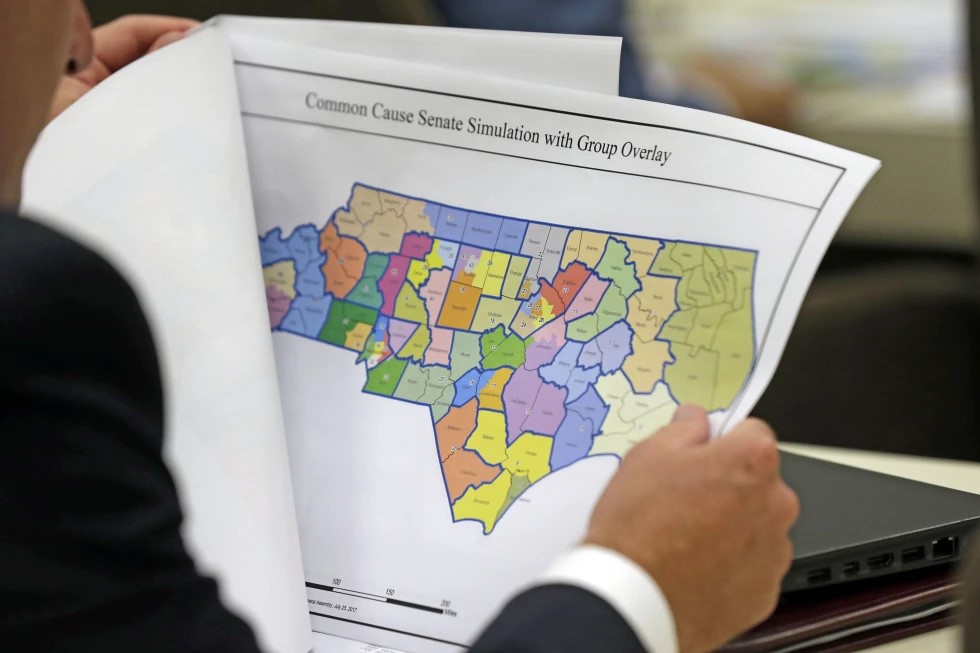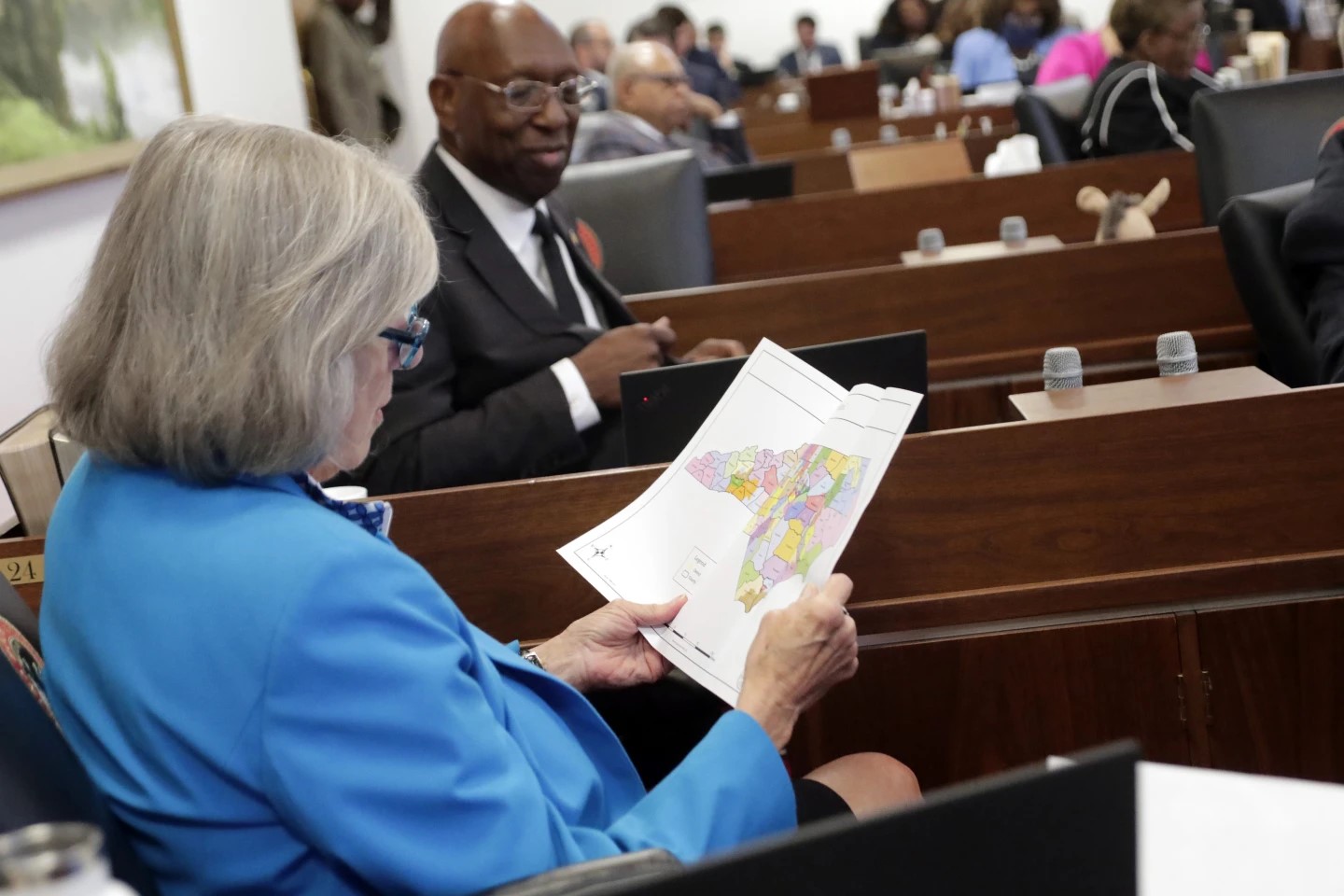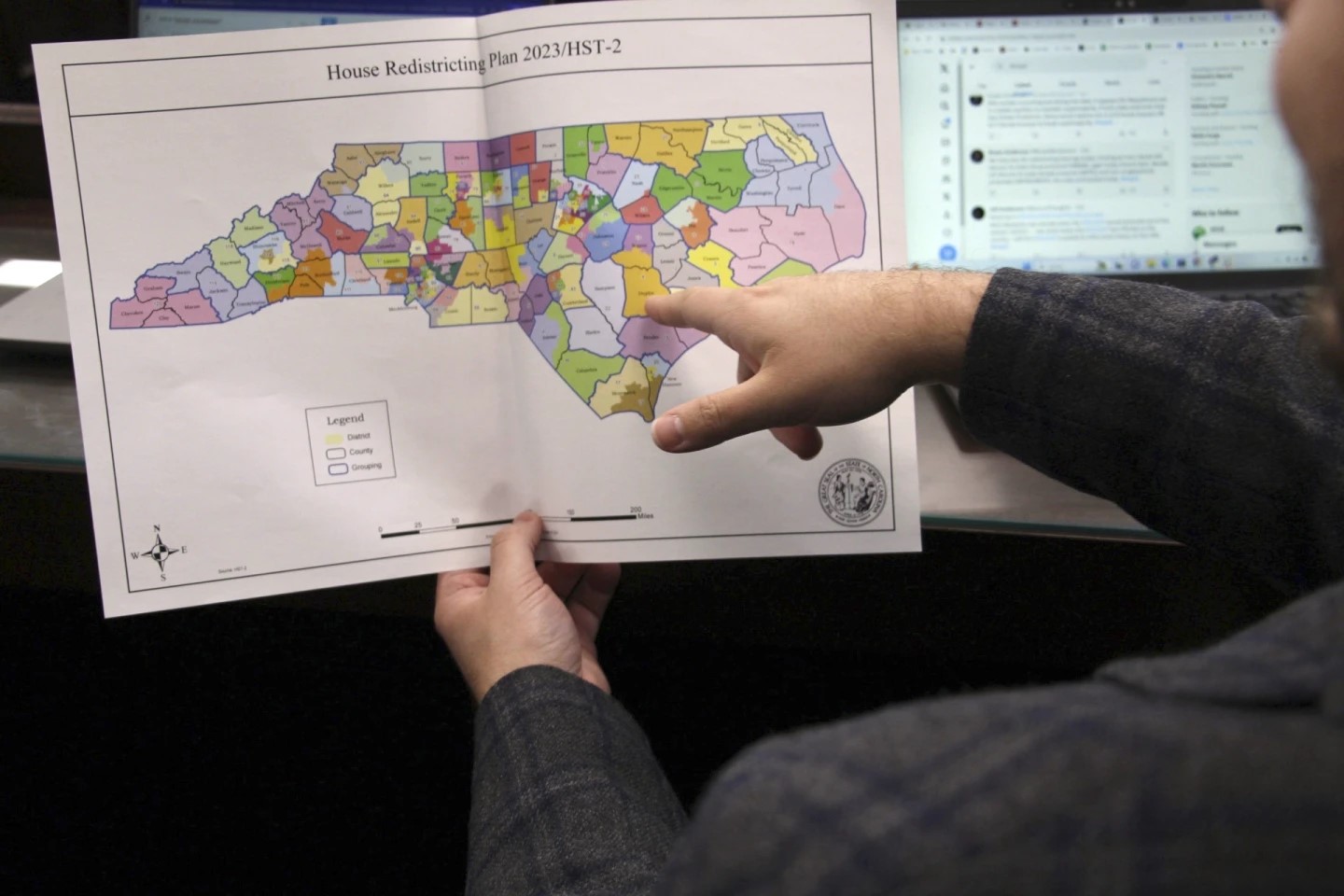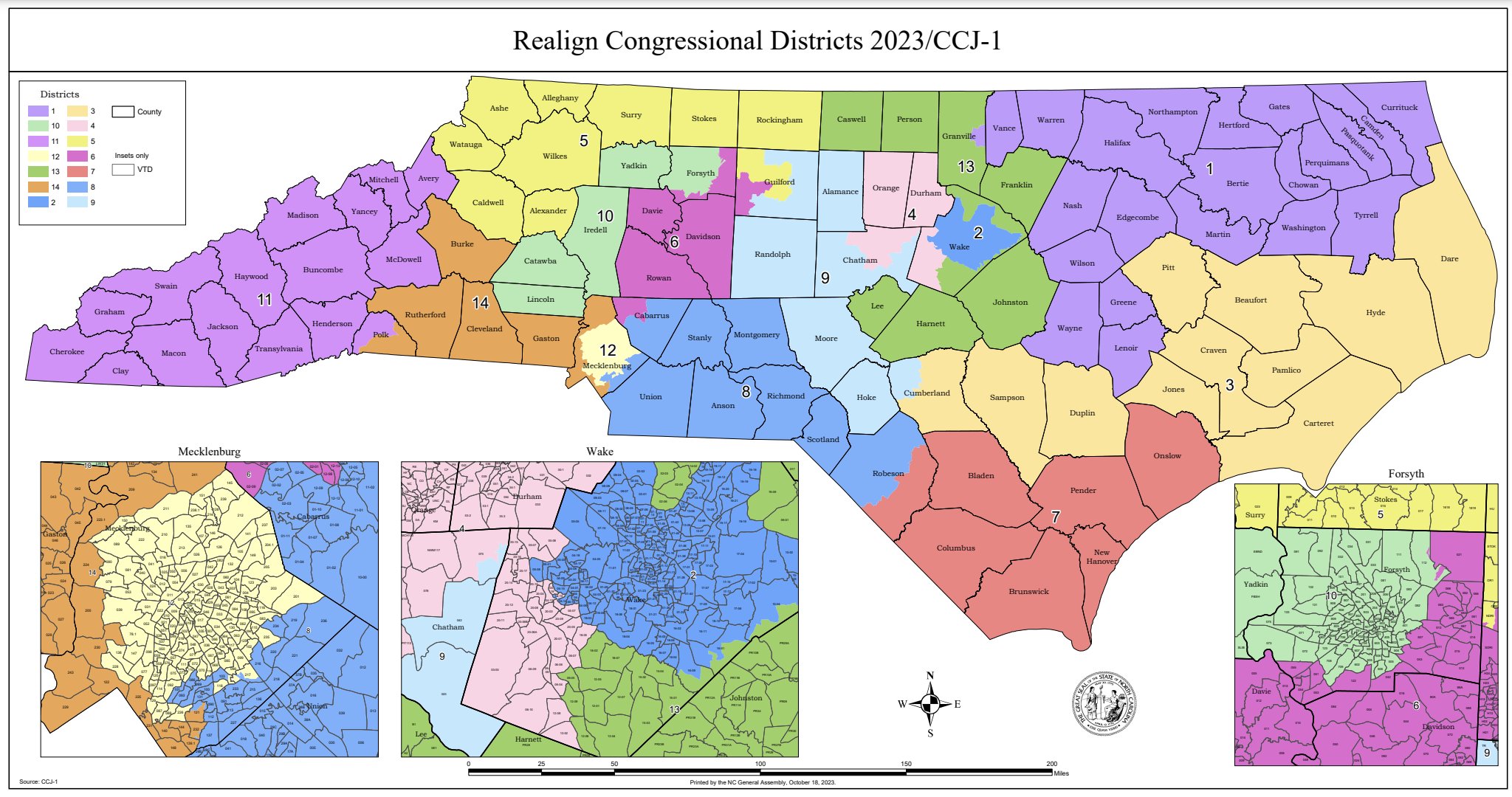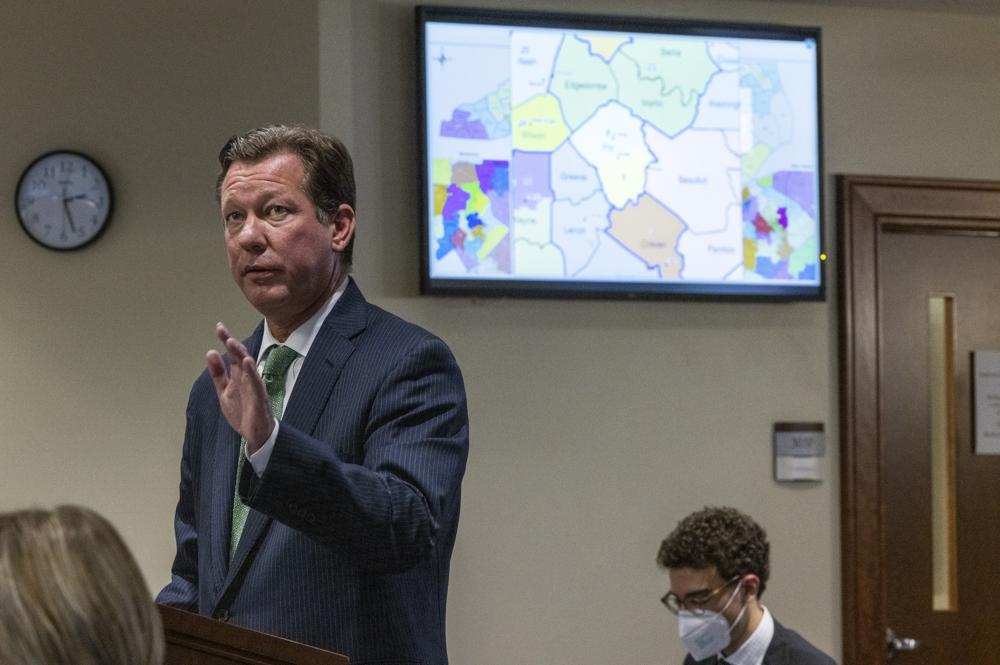Written by GARY D. ROBERTSON
Another lawsuit challenging North Carolina’s latest round of redistricting has been filed, this time by a conservation group, university mathematicians and voters who accuse Republican mapmakers of illegal partisan and racial gerrymandering.
The litigation, spearheaded by the North Carolina League of Conservation Voters, opposes both the state’s congressional and General Assembly districts. That’s in contrast to two previously filed lawsuits, one of which focuses on the congressional plan and the other on procedures in forming state House and Senate districts.
The plaintiffs in part accuse Republican legislators of violating the state constitution by parceling out portions of the state’s large urban counties into districts that appear to favor GOP congressional candidates. General Assembly lines also appear to group Black voters excessively in some districts while fracturing Black voting blocs across others in a method to dilute their electoral power, according to the lawsuit filed late Tuesday in Wake County Superior Court.
The result, the plaintiffs say, likely will help Republicans retain their majorities in both the House and Senate and hold at least nine of the state’s U.S. House seats in 2022, even as North Carolina is considered closely divided when it comes to statewide elections. North Carolina gained a 14th congressional seat due to population growth measured by the 2020 census. Republicans currently hold an 8-5 seat advantage.
The maps frustrate the League’s “efforts to build a pro-environment majority, and undermine NCLCV’s ability to hold legislators accountable,” the lawsuit says.
Republican legislators have repeatedly defended the new boundaries approved this month as lawful, and in keeping with state courts that signed off on approved lines that were drawn without the examination of race-based data or election results.
The mathematicians and others who sued endorse alternative plans they say are based on computer algorithms that follow state law and “traditional, neutral” redistricting principles. They would give Democrats the chance to be more competitive and hold seat majorities, according to the plaintiffs.
The plaintiffs, who also include former longtime Democratic Rep. Mickey Michaux of Durham, do not seek “to favor any political party or incumbent,” the lawsuit reads. Rather, they “support fair maps drawn with advanced science and technology that preserve every North Carolinian’s right to vote in free elections on equal terms and that do not discriminate against voters based on race or party.”
The lawsuit asks the judges hearing the case to order their remedial plans be used in the 2022 elections if lawmakers can’t redraw lawful maps quickly, and suggests the March 8 primaries could be delayed. Candidate filing is set to begin Dec. 6.
GOP legislators agreed this year to prohibit the use of election or racial data when drawing boundaries. Republicans also cited earlier federal court findings they say show there wasn’t sufficient evidence to declare North Carolina has racially polarized voting, so special attention to racial data wasn’t required.
While the U.S. Supreme Court ruled in 2019 that federal courts cannot overturn maps on the basis of extreme partisanship, state courts aren’t subject to the decision. Later that year, orders by North Carolina state judges finding excessive partisanship violated the state constitution led to the redrawing of both legislative and congressional maps for use in the 2020 elections.
A lawsuit by the North Carolina NAACP, Common Cause and four individuals filed Oct. 29, before the new boundaries were drawn, challenged the legislators’ refusal to consider racial data before considering proposals for General Assembly districts. And a Nov. 5 filing by a group of voters who challenged the constitutionality of congressional maps approved in 2016 contests the latest congressional maps.
Photo via Travis Long/The News & Observer.


